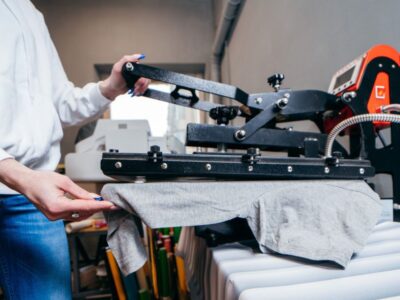People who prefer to deal in absolutes often have a tough time finding a middle ground in the plastics debate. Plastic presents a dichotomy that is exceedingly difficult to get around if everything is black-and-white. Yet the truth is that the modern world has a love-hate relationship with plastic. It is a complicated relationship, to use social media terms.
On the one hand, we love the fact that cheap plastic gives us access to equally cheap consumer goods. We love the fact that we can go to the grocery store two or three times per month rather than having to take time out of each day to go buy fresh food from multiple vendors.
On the other hand, we hate walking down the street and seeing plastic water bottles and food containers in the gutter. We cringe when we see photos of that big plastic island floating around in the middle of the ocean. The question is this: how do we reconcile the good and bad sides of plastic?
A Revolutionary Manufacturing Material
A completely rational approach to plastic forces one to recognize that it is a revolutionary manufacturing material unlike anything else we use to make stuff. Plastic is cheap to manufacture yet still versatile, durable, capable of being fashioned into just about any shape. Plastic works so well that we use it to make:
- Packaging – Packaging accounts for nearly 40% of all plastic production. Plastic packaging protects food from spoilage. It makes it easier to ship everything from cosmetics to office products to home-improvement supplies.
- Car Parts – The automotive industry is one of the larger consumers of plastic. Carmakers rely on plastic for all sorts of parts.
- Electronics – Consumer electronics, like cell phones and computers, have more plastic in them than most people realize.
- Medical Supplies – Plastic’s sanitary nature makes it ideal for an entire range of medical supplies and devices including syringes, IV bags, and even prosthetics.
This shortlist only scratches the surface in terms of all the possibilities that plastic offers. Needless to say that the world would be a very different place if plastic didn’t exist. But that still doesn’t mean we don’t have a plastic waste problem.
We Waste Far Too Much
We love plastic because it is such a great manufacturing material. We hate it because it’s part of a larger waste problem. But let us be clear about one thing: the modern culture waste far too much. We produce and throw away a lot more than is necessary. Our wasteful habits have nothing to do with plastic, by the way. We waste because we choose to.
The thing is that there are ways to use plastic responsibly. In Memphis, TN, Seraphim Plastics successfully recycles tons of industrial scrap plastic every year. Similar companies around the country do the same thing. They prove every day that responsible waste management is possible if we have the will to do it.
Seraphim and its customers work together to keep plastic waste out of landfills. Similar things could be accomplished with consumer plastics if we all worked together to make it happen. But success requires that everyone participate. City councils, state lawmakers, and municipal recycling programs cannot eliminate or reduce waste. Only those who generate it – we consumers – can do anything meaningful to generate less of it.
We have a love-hate relationship with plastic. Will that ever change? Probably not. We are into plastic far too deeply to stop using it now. So a better way to deal with plastic is to figure out better ways to produce, use, and dispose of it.












Comments